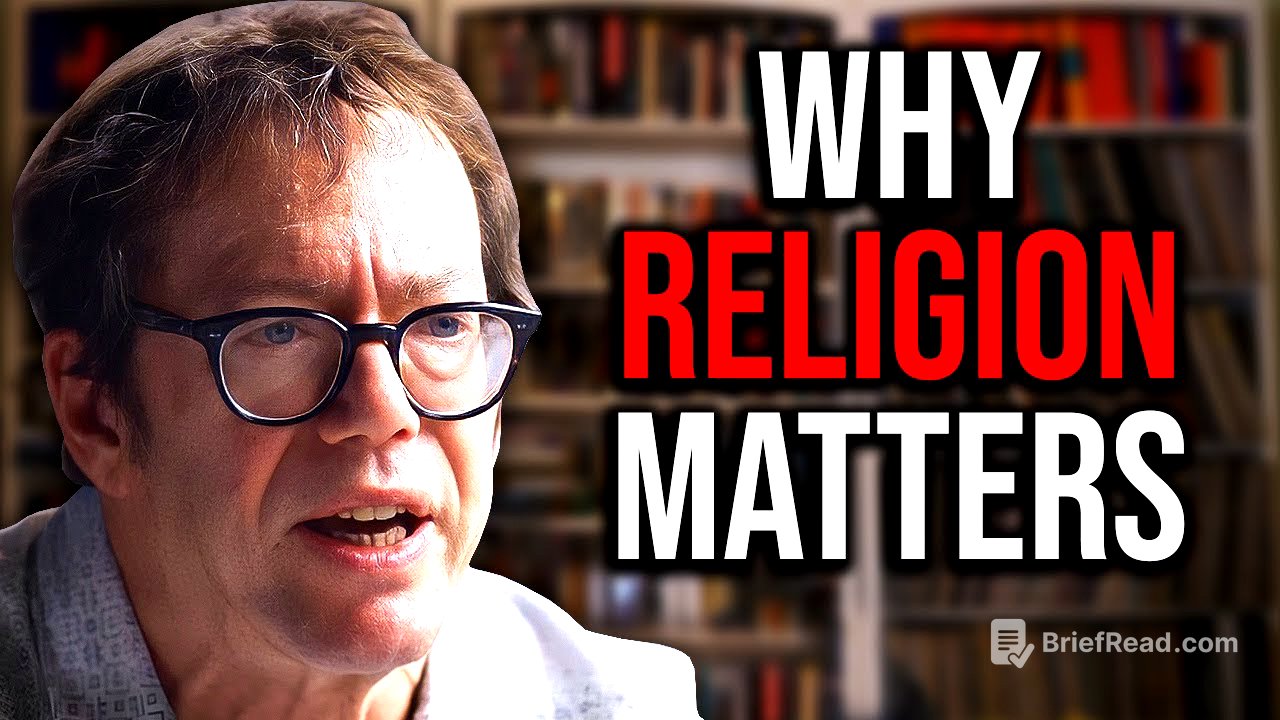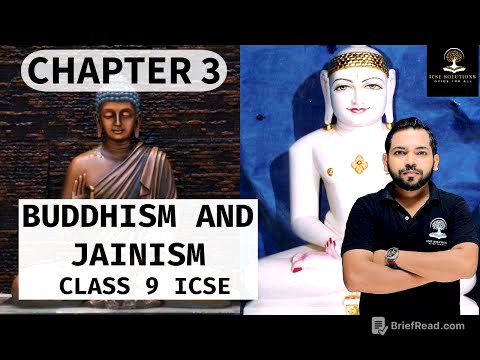TLDR;
Robert Greene discusses the importance of religion and spirituality in providing a sense of connection to something larger than oneself, especially in today's world filled with trivial distractions. He emphasizes the need for religions to promote tolerance, humility, and a focus on their original, purer forms, rather than becoming sources of division and animosity. He also touches on his personal experiences with religion and his current book project exploring the sublime.
- Religion should make you look inward and realize there's something larger than daily life.
- Spirituality helps us cope with mortality and the triviality of daily life.
- Religions should focus on tolerance, humility, and their original, purer forms.
The Craving for Something Larger [0:00]
Robert Greene opens by reflecting on the role of religion in providing perspective and connecting individuals to something greater than their daily lives. He notes that many people deeply crave this connection, especially today. He shares his personal experience with Judaism, mentioning that while he was initially put off by organized religion, he later recognized the importance of experiencing a sense of connection to something larger than oneself, whether it's called life, the energy of the universe, or God. This feeling transcends individual ego and acknowledges the immensity and wonder of life itself.
The Role of Religion and Tolerance [1:47]
Greene expresses his aversion to preaching morality, preferring to trust that individuals can make their own choices. He emphasizes the importance of tolerance, a teaching that some religions, like Christianity, promote at their core. Recognizing human beings as flawed creatures can foster humility and the understanding that there is something greater than ourselves. Religion should encourage introspection, offering perspective and awareness of life's immensity and the mystery of death, thereby transcending the trivialities of everyday existence.
Spirituality and the Awareness of Mortality [2:43]
Greene explains that the human awareness of mortality drives the need for spirituality and belief in something beyond individual existence. He laments how the triviality of daily life and social media has diminished this spirit. He believes that religion and spirituality should redirect our focus to something greater, such as the shared reality of facing death. He references the book "Miracle in the Andes," where the author found a unique form of spirituality amidst a life-or-death struggle, sensing a powerful presence despite not believing in a conventional God.
Returning to the Origins of Love and Acceptance [4:47]
Greene shares his familiarity with the New Testament and the story of Christ, which has always appealed to him. However, he is disturbed by the perversion of Christianity's core values of love and acceptance into polarization and animosity. He wishes for a return to the origins of these religions, which celebrated poverty and sympathy for the less fortunate, rather than wealth and power. He expresses a desire for religions to revert to their purer, ancient forms, focusing on something greater than individual lives and daily political struggles.









